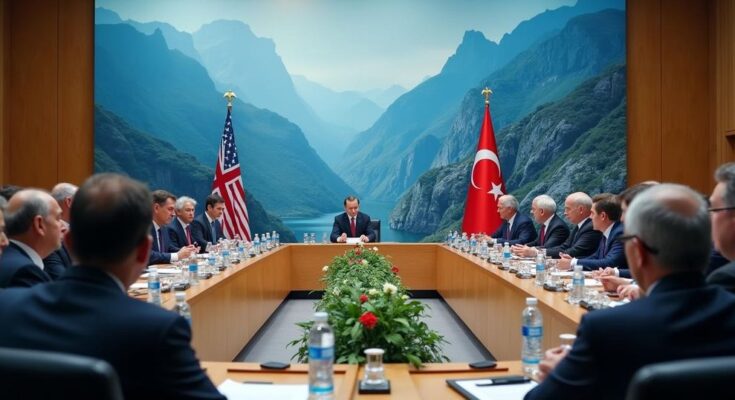The hosts of COP29 in Azerbaijan have called for nations to stop blaming each other for climate change and focus on finding solutions. A financial pact for climate assistance remains unresolved as the conference approaches, with significant increases needed in funding commitments. Leaders emphasized the urgency of cooperation and immediate actions to address climate finance and environmental responsibilities ahead of the summit.
The upcoming COP29 climate summit in Azerbaijan has prompted its hosts to call on nations to cease the blame game surrounding global warming and instead focus on collaborative efforts to address this pressing issue. A month before the conference, which is set to commence on November 11, 2023, there remains significant contention among countries regarding a new financial accord aimed at facilitating substantial investments to support developing nations in reducing emissions and adapting to climate impacts. During a pre-COP meeting in Baku, Azerbaijani President Ilham Aliyev emphasized the importance of constructive engagement among states, stating that while countries share varying degrees of responsibility, it is imperative to set aside disputes and prioritize consensus-building. President Aliyev articulated, “We cannot afford to waste time on defining who is guilty for global warming, or who caused more environmental harm.” In addition, COP29 president Mukhtar Babayev highlighted the need for more decisive action from negotiating parties to finalize agreements. Specific financial commitments are critical as the previous arrangement, under which wealthy nations pledged $100 billion annually to support poorer countries, is set to expire next year. Current discussions indicate potential increases in funding requirements, with estimates exceeding $1 trillion; however, there is a cautious atmosphere as donor nations hesitate to declare their contributions and are seeking participation from other major economies such as China. Despite a lack of significant progress leading up to COP29, Babayev indicated possible signs for compromise on certain aspects of the negotiations. He urged the parties involved to earnestly fulfill their responsibility in identifying a suitable financial figure and to propose viable solutions. Furthermore, it is noteworthy that Azerbaijan, a nation rich in fossil fuel resources, is committed to expanding fossil fuel production, which raises concerns regarding the global transition from fossil fuels, an objective agreed upon at the preceding COP held in the United Arab Emirates. UN climate chief Simon Stiell underscored the urgent need for tangible outcomes from COP29 to actualize commitments made during the previous summit.
The call to action from Azerbaijan’s leaders occurs against the backdrop of an international climate crisis that necessitates urgent collective action. As nations prepare for the COP29 summit, the focus has shifted towards creating effective financial mechanisms to support developing countries facing the brunt of climate change challenges. The previous agreement on climate finance, which promised $100 billion annually to poorer nations, is widely regarded as insufficient, thus intensifying pressure to negotiate a more robust financial framework. Additionally, Azerbaijan’s status as a petrostate complicates the discourse surrounding fossil fuel reliance and the global commitment to mitigate climate change.
In conclusion, the hosts of COP29 have emphatically conveyed that nations must prioritize cooperation over blame in their collective pursuit of climate solutions. The complexities of negotiating a new financial agreement highlight the urgent need for a unified approach to finance climate initiatives, particularly for developing nations. The summit represents a critical juncture for global climate action as the stakes continue to rise amidst ongoing environmental challenges. Achieving concrete outcomes at COP29 will be imperative to translating previous pledges into meaningful action.
Original Source: www.france24.com




